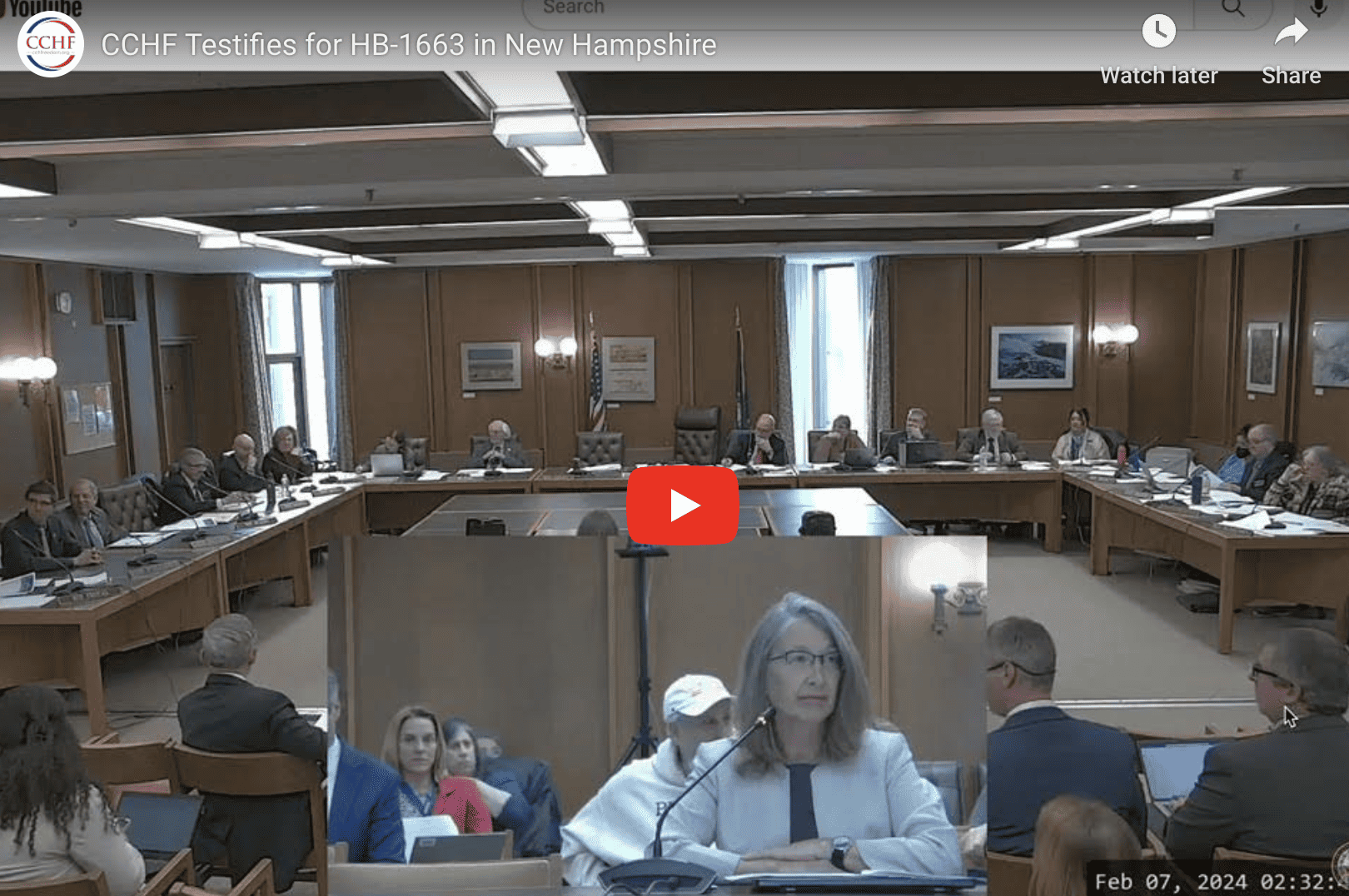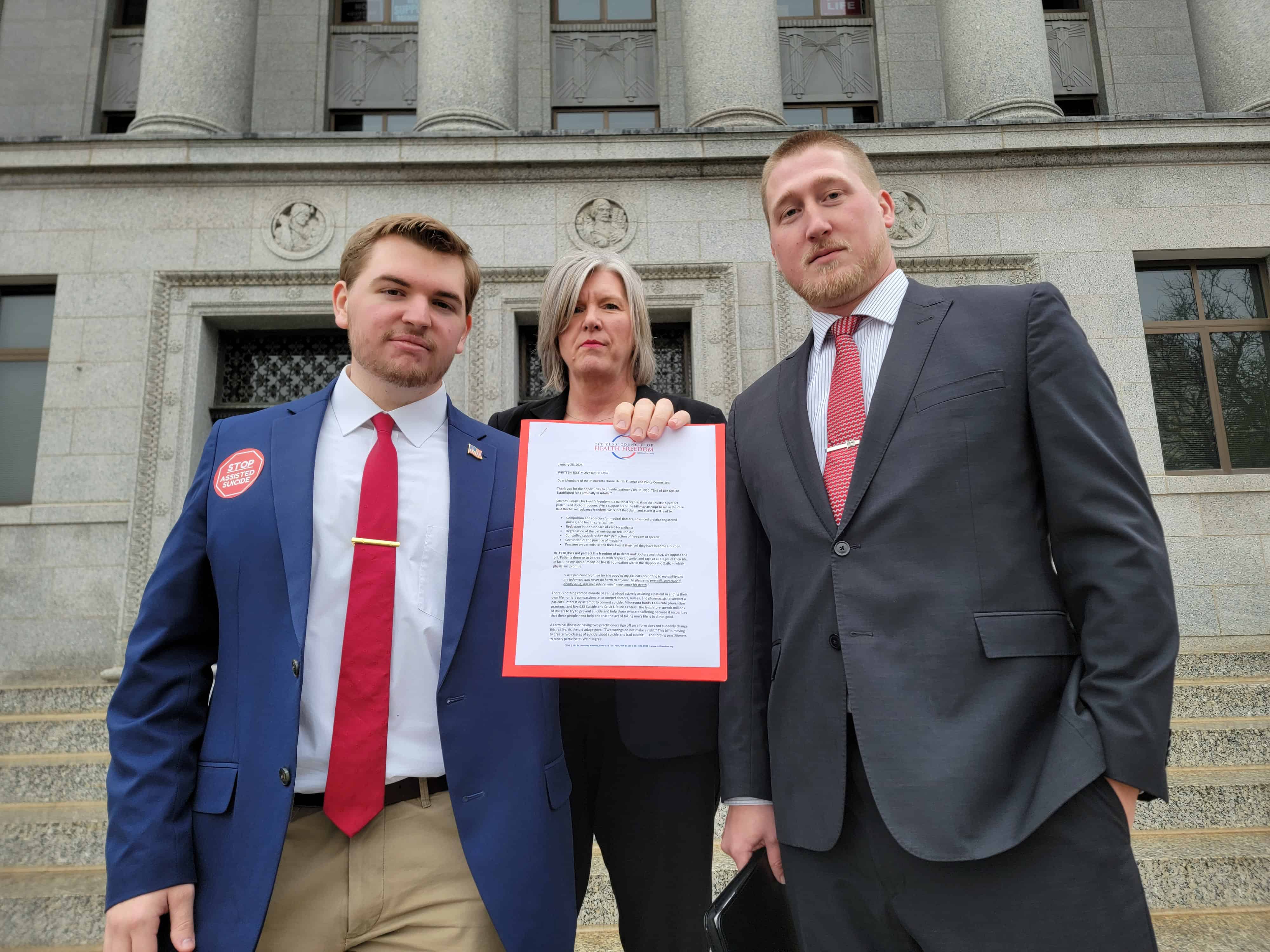FROM: Twila Brase, RN, PHN, President and Co-founder, CCHF
TO: U.S. Department of Justice, U.S. Department of Health and Human Services, and Federal Trade Commission
Citizens’ Council for Health Freedom appreciates this opportunity to respond to the RFI on Consolidation in Health Care Markets. CCHF is a national non-profit organization dedicated to patient and doctor freedom. We are patient-centered, privacy-focused, and free-market-driven.
If your three departments requesting information are looking for solutions, much insight and direction can be found by looking at the primary and secondary causes of consolidation.
The primary cause is third-party payment for care. The secondary cause is bad government policy that led to, upheld, continued, and escalated third-party payment for (and outsider interference in) medical treatment decisions best left to the patient and the doctor.
These bad policies include the following laws and rules. Congress’s first mistake was codifying employer-sponsored coverage, which discouraged people from buying personal health insurance and grouped Americans together by employment. Then in 1965, the enactment of Medicaid and Medicare — 19 million senior Americans given access to “free” medical care without ever paying a dime into the program — led to massive regulatory requirements, restrictions on care, onerous reporting requirements, and winners and losers. Large institutions with the most administrative capacity won. Smaller hospitals and clinics, those whose only purpose was patient care, not paperwork, lost. Patients lost as consolidation began.
The HMO Act of 1973 then funded a government-approved system of centralized power: HMOs, now called health plans, which merged the financing and delivery of health care and are now corporate versions of socialized medicine. In 2009, the expensive, unfunded electronic health record (EHR) mandate left many independent and smaller practices in danger of losing Medicare reimbursements for care, forcing many to sell their practices to large corporations.
The Affordable Care Act’s prohibition on catastrophic coverage, near-prohibition on physician-owned hospitals, and imposition of the shared savings program (ACOs – Accountable Care Organizations) led to fewer coverage choices, health plan monopolies, in-hospital control by hospitalists, and hospitals buying up and controlling clinics to achieve “shared savings” (federal kickbacks). Increasingly over the years, we’ve watched health plans buy health care systems, and health care systems buy health plans. Complete vertical integration and full consolidation.
This history makes it clear that no one should be surprised that today’s health care system has consolidated into monolithic institutions whose primary interest is NOT the patient.
Government policies made it so.
The only question now is whether DOJ, HHS, and the FTC are serious about restoring market forces to health care.
There are likely just two ways to restore the market-forces that lead to affordable care and coverage, a full range of treatment choices, patient-centered care, restored medical privacy rights, and the medical excellence America has been known for:
- putting the current health care system into a full reverse, eliminating more than 60 years of bad policy decisions, or
- creating a parallel free-market health care system based on real health insurance (medical indemnity policies that pay the patient) and cash-based care.
CCHF would be pleased if the DOJ, HHS, and FTC would be willing to work with Congress to bring back the affordable care and coverage that Americans need — patient lives depend on it — but we’re betting on the parallel system.
Bureaucracy begets bureaucracy.
It is the independent doctor and staff striving to go free that will solve the problem elected officials and bureaucrats have spent 80 or so years putting into place.
Today, private equity, viewing a highly consolidated market, sees money to be made, lots of it. Government caused consolidation, leading to skyrocketing prices, price-gouging, full corporate coffers, denial letters, rationing, and wealth redistribution from everyday Americans in need of medical care to corporate executives who raise prices while rationing health care.
As President Ronald Reagan said at CPAC in 1981: “Government is not the solution to our problem. Government is the problem.” Thus, CCHF is not particularly hopeful that three government agencies want to put their heads together to come up with a free-market, competition-based system for health care—but we would be pleased if a real solution emerged.
At least federal agencies have officially acknowledged the problem of consolidation. Whether the heads of these government agencies will acknowledge the source of the problem – GOVERNMENT ITSELF – that is the question. Only then will DOJ, HHS, and FTC have a chance of finding a real solution. As the parallel system grows, we wish you all success!






CCHF’s Written Testimony Opposing Minnesota SF 4778 Public Option